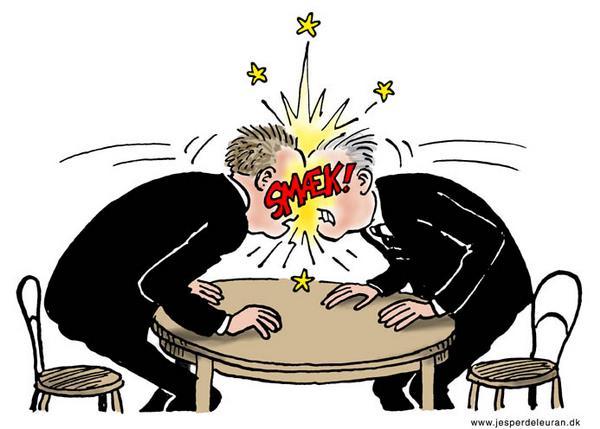David Roach has written an article published at the Baptist Press titled, Why care about the CBF?. Roach describes a recent experience he had when visiting the CBF’s General Assembly. The thesis of his article is that the CBF is still useful to the SBC, not necessarily for the ministry, but as a reminder of the SBC’s Conservative Resurgence and as a reason for the SBC to unite in its cause.
He says, “There are at least two important reasons why Southern Baptists should take note of what our moderate counterparts are doing. . . . First, for younger Southern Baptists like myself, the CBF should cause us to give thanks to God for the SBC’s conservative resurgence. . . . Second, observing the CBF should call us to unity as a convention.”
In response to his first reason; I can only say that his apparent reverence for the Conservative Resurgence Fathers seems a little tacky.
In response to his second reason; he discusses one of the “saddest moments during the entire General Assembly.” He explains that “the Lord’s Supper seemed only to be a generic symbol of Christian unity rather than a remembrance of the glorious salvation we have in Jesus.” Roach did not partake of the elements with the others. He says that he was “discouraged that Fellowship Baptists only celebrated unity abstractly without articulating a solid doctrinal foundation for that unity.”
I asked myself, did Jesus perform the first sacrament up to Roach’s standards? Did they discuss theology before taking the blood and body? Did Jesus call for a moment of reflection before offering himself up?
How many times do we have to repeat the same procedure before we “get it” and can enjoy the sacraments with the full knowledge of what they symbolize – in unity with our brothers and sisters.
Roach continued by saying, “That sad celebration made me think of how much we have that’s worth unifying around in the SBC. . . . Seeing unity without substance should be a vivid reminder that we must take full advantage of the opportunity to unify with those who share our most valued convictions.”
He ends, saying, “If you think the CBF is not worth thinking about, think again. Taking a little time to see what Southern Baptists could have been might help you celebrate and unify around what we are.”
I am not trying to pick on Roach (although he seems to be doing a good job of putting down the CBF). I did not attend this meeting. I am not an “Ecumenicalist” (at least not in the political sense of the word). I even sense that he probably means well – but I have to ask – is he really seeking unity? Isn’t this just an attempt at uniting with disunity? Are we really called to unite, only, with those who agree with our “most valued convictions” or with all of our brothers and sisters in Jesus?
Should we really thank God that we are not like those CBF Baptists as we choke down our dry crackers and grape juice?
“The Pharisee stood and was praying this to himself: ‘God, I thank You that I am not like other people: swindlers, unjust, adulterers, or even like this tax collector. I fast twice a week; I pay tithes of all that I get.'” – Luke 18:11-12

Lew,
That is the exact scripture that I was thinking about as I read this post. I’m concerned about the SBC and the issues they keep pushing to the forefront.
Good post-
Brandon
Lew,
I have not read the article yet… I’m not sure that I want to. Honestly, this breaks my heart. “That sad celebration made me think of how much we have that’s worth unifying around in the SBC.” There is only one Person worth unifying around, and it is not the SBC. Our unity is in Christ, and that unity includes the CBF and other brothers and sisters in Christ who disagree with us.
May God have mercy on us.
-Alan
As a non-SBC (although I have worked in SBC churches before, and obviously have good friends in the SBC here on these blogs), I’m very concerned about what I see being talked about in the SBC.
Recently, I have engaged a couple of people who are very, very active in the political machinery of the SBC, and the conversation always frustrates me because they pay lip service to me as a “brother”, but then draw all kinds of lines between us.
Calling someone “brother” does not mean that there is unity. Sure, the SBC is probably not doing any worse than any other denomination at drawing lines (that seems to be the nature of denominationalism, by definition), but it’s still heart-breaking to see it in any form.
As Alan said, we unify around Christ. To the extent in which people promote their “Baptist identity” over and above their “Christ identity”, unity will always be kept from reality.
Hi Lew,
Very thoughtful response. thank you for these thoughts.
-BLM